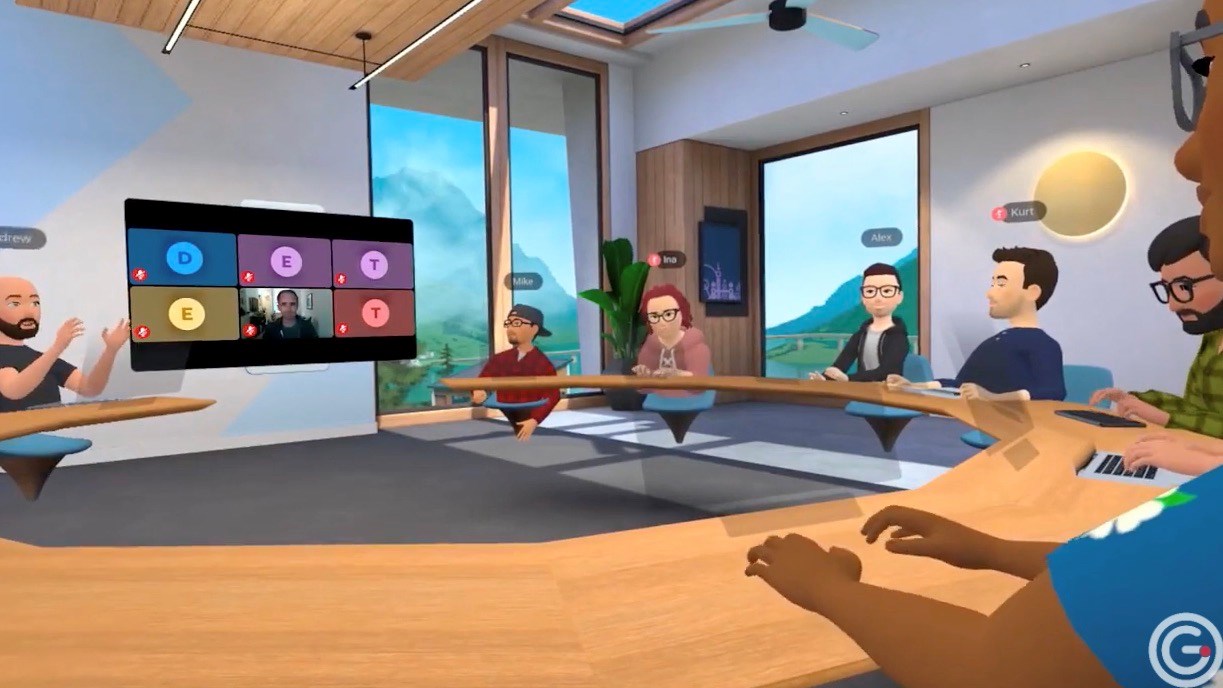Facebook’s ‘metaverse’ triggers data mining, privacy concerns from experts

Australian experts have raised concerns over Facebook – now known as Meta – and its plans to spend upwards of A$13.3 billion (US$10 billion) this year on augmented and virtual reality hardware and apps.
The suite of products and services is being built into a so-called “metaverse”.
“In the metaverse, you’ll be able to do almost anything you can imagine – get together with friends and family, work, learn, play, shop, create – as well as completely new experiences that don’t really fit how we think about computers or phones today,” Facebook founder Mark Zuckerberg said in a letter outlining his vision for the project.
Critics have questioned the timing of the company’s corporate rebrand to Meta on Friday, as former employees-turned-whistleblowers testify before US Congress and inquiries in the UK about issues with disinformation, misinformation, abuse and the mental health impacts on users.
Australian academics have signalled the added risk of data mining and privacy that arise from the use of virtual reality.
“People often think of virtual reality as a gaming technology. But it is a lot more than that. We’re definitely going to see VR being used in health, education and in work,” said Dr Marcus Carter at the University of Sydney, who researches digital cultures and human-computer interaction.
“And unlike the data we can collect from someone through their use of a PC or mobile – VR data is biometric.”
“The way that you move, how your eyes move, how you look at things is so unique that we can identify you from a giant data set.”
Promises of privacy and safety measures
Mr Zuckerberg has vowed that governance and responsibility over privacy and safety will be embedded into the metaverse project.
“Privacy and safety need to be built into the metaverse from day one. So do open standards and interoperability. This will require not just novel technical work — like supporting crypto and NFT projects in the community — but also new forms of governance. Most of all, we need to help build ecosystems so that more people have a stake in the future and can benefit not just as consumers but as creators,” he said.
Dr Ben Egliston at the Queensland University of Technology, who researches the ethics of virtual and augmented reality, said there are concerns about how the biometric data that is collected will be used.
“My main issue here – and a real point of concern for consumers – is the extent to which these kinds of technologies will be used for harvesting data about their users,” he said.
“Facebook is a company that makes money from advertising, which is enabled through the capture of data by its users.”
“While Facebook has at various points said that it will not be using the VR and AR data or advertising, they have gone back on that relatively recently. They have said they have started testing out advertising in certain virtual reality applications.”
“Virtual and augmented reality are really intimate forms of media in the sense that they are capturing data about our body, about our movement – potentially our facial gestures, our gaze and eyes. Things that can be used to infer various things about us.”
“I think there are real concerns here, not just about data in a broad sense, but also in terms of the very specific forms of data that the company has the potential to extract.”
‘Broader issue of how we regulate tech’
Dr Egliston said this new venture by Facebook has exposed the deeper problems with data mining in general, as was revealed in scandals like the 2018 scandal with data analytics firm Cambridge Analytica that saw the use of Facebook data from millions of users for political campaigning.
“It is a broader issue of how we regulate tech, in a broader sense,” he said.
Dr Carter said the new announcement provides regulators and policymakers with an opportunity to intervene to prevent harm.
“The first thing that consumers and policymakers need to do is to start to understand what some of the risks are to them personally – but also to society when we’re talking about the types of data that can be generated by VR and AR technologies that previously couldn’t be generated,” he said.
“We’re talking about data that offers deep insight into how we think, how we reason, but also the physical environment: what is in our home, who is in our home, what we’re doing. But also in public spaces.”
“All Zuckerberg needs is one person in his or her room in the world to be listening in on their headset – and he knows what is going on everywhere all of the time.”
Dr Carter said it’s not “a question of some consumers opting out and some opting in”.
“But we need to think about the implications that this type of technology has on everybody – even if only some people are using it every day,” he said.
Source: sbs.com.au




